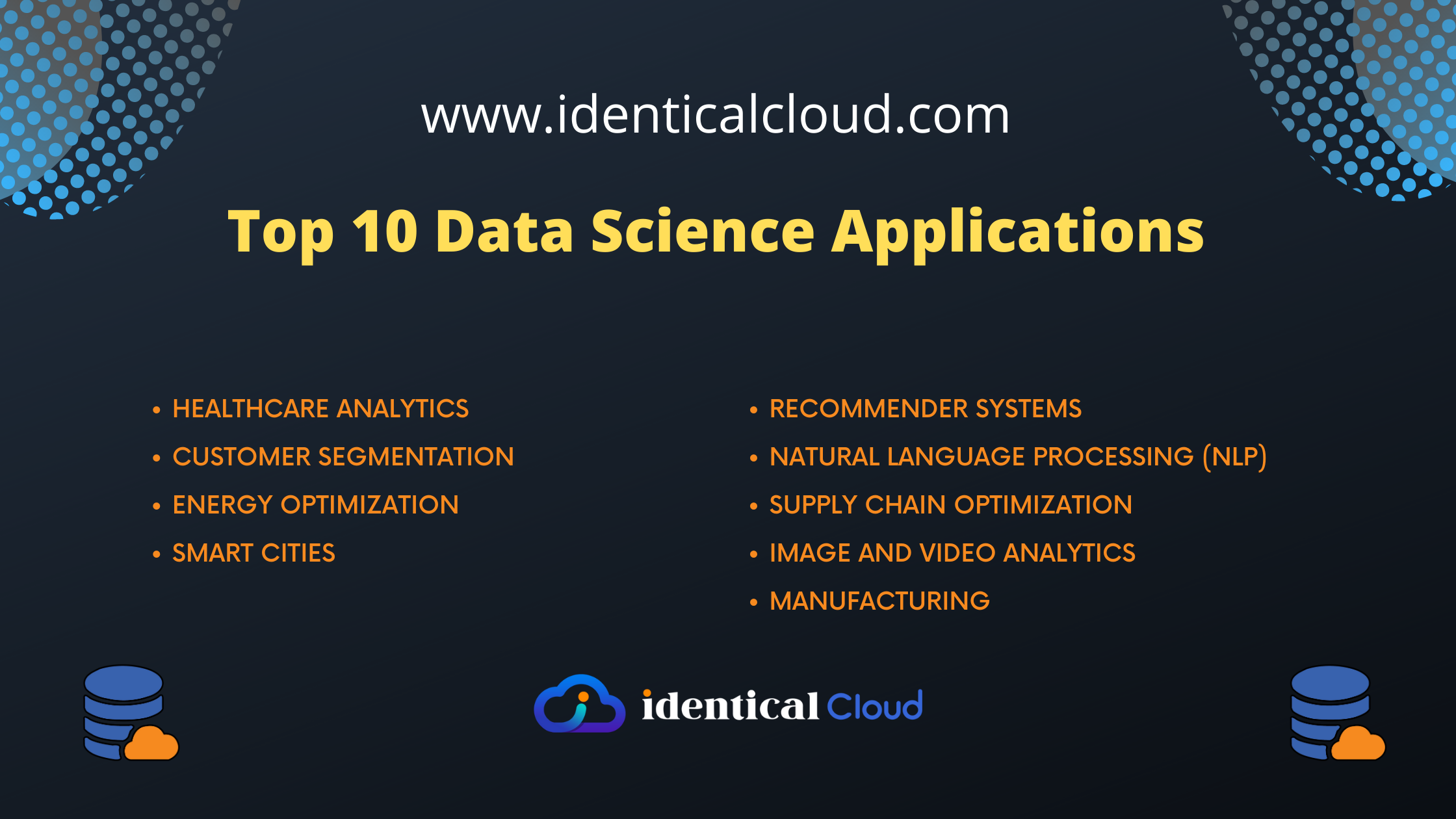
Top 10 Data Science Applications
Top 10 Data Science Applications
Data science has emerged as a powerful discipline that leverages algorithms, statistical analysis, and machine learning techniques to extract valuable insights from large volumes of data. Its applications span across various industries, revolutionizing decision-making processes, enhancing operational efficiency, and uncovering hidden patterns and trends.
In this blog post, we will delve into ten top data science applications, exploring how they are transforming industries and driving innovation.
Fraud Detection
Fraud detection is a critical application of data science, particularly in the financial sector. By analyzing transactional data and identifying unusual patterns or anomalies, data scientists can build models that detect fraudulent activities. These models help organizations prevent financial losses, protect customer data, and maintain the integrity of their systems.
Healthcare Analytics
Data science is revolutionizing healthcare by leveraging patient data to improve diagnostics, treatment plans, and patient outcomes. By analyzing medical records, genomic data, and clinical trials, data scientists can develop predictive models for disease diagnosis, personalized medicine, and drug discovery. Healthcare analytics enables healthcare providers to make evidence-based decisions, optimize resource allocation, and enhance patient care.
Customer segmentation
Data science can be used to segment customers into groups based on their demographics, interests, and purchase behavior. This information can then be used to target customers with specific marketing messages or products.
Energy Optimization
Data science plays a significant role in optimizing energy consumption and improving sustainability. By analyzing energy usage patterns, weather data, and building sensor data, organizations can identify energy-saving opportunities, optimize energy distribution, and reduce carbon footprint. Energy optimization applications contribute to a greener future and more efficient resource utilization.
Smart Cities
Data science enables the development of smart cities by analyzing data from various sources such as sensors, social media, and public records. By leveraging data analytics, smart cities can optimize transportation systems, manage resources, improve public safety, and enhance the quality of life for residents. Data-driven insights enable urban planners to make informed decisions that positively impact the environment, infrastructure, and citizen well-being.
Recommender Systems
Recommender systems are prevalent in e-commerce, entertainment, and content platforms. These systems analyze user behavior and preferences to provide personalized recommendations. By applying data science algorithms, organizations can enhance user engagement, increase sales, and improve customer satisfaction.
Natural Language Processing (NLP)
NLP enables computers to understand and interact with human language. It has applications in various fields, including virtual assistants, sentiment analysis, chatbots, and language translation. Data science techniques such as text mining, sentiment analysis, and named entity recognition empower NLP models to analyze and extract insights from textual data, improving communication and decision-making processes.
Supply Chain Optimization
Data science plays a vital role in optimizing supply chain operations. By analyzing historical and real-time data, organizations can enhance inventory management, streamline logistics, and predict demand fluctuations. Data-driven insights help minimize costs, reduce delivery times, and improve overall supply chain efficiency.
Image and Video Analytics
Data science enables image and video analytics, transforming industries such as surveillance, healthcare, and retail. Computer vision algorithms analyze visual data, detect objects, recognize patterns, and extract valuable information. Applications range from facial recognition and object detection to video surveillance and quality control.
Manufacturing
Data science can be used to improve manufacturing processes by analyzing data on product quality, equipment performance, and supply chain logistics. This information can then be used to improve product quality, reduce costs, and increase efficiency.
The applications of data science are diverse and continue to expand across industries. The ten applications discussed in this blog post, including predictive analytics, fraud detection, healthcare analytics, recommender systems, natural language processing, supply chain optimization, image and video analytics, sentiment analysis, energy optimization, and smart cities, highlight the transformative power of data-driven insights. By harnessing the potential of data science, organizations can gain a competitive edge, make informed decisions, and unlock new opportunities for growth and innovation.
